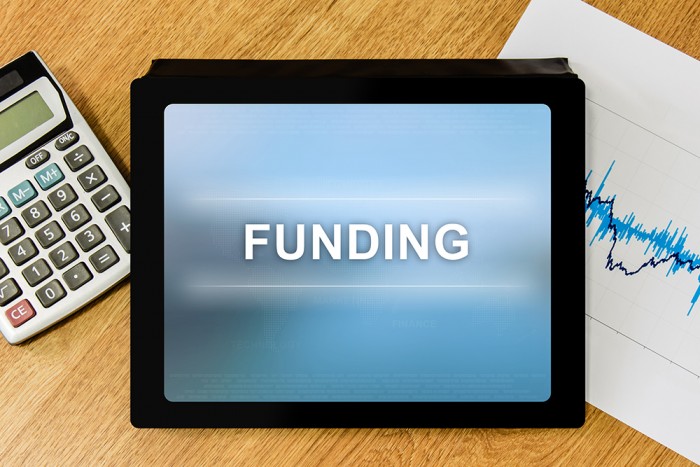Funding
$225M in Federal COVID-19 Relief Slated for Pa. Health Care Workers
Anthem Foundation Issues RFP for SUD Programming
Anthem Foundation is making up to $30 million available over the next three years to support substance use disorder programs that address an array of care and service options, including prevention and early intervention, crisis response and interventions, long-term intervention, and community resources and recovery supports.
Qualified nonprofit organizations with a history of proven, programmatic community initiatives are invited to apply for funding. Although Pennsylvania has not been specifically identified as a local area of focus, Pennsylvania providers can qualify under the National Programs of Emphasis category. More information about funding guidelines and eligibility is available. The deadline to submit applications is January 31, 2022.
Department of Health Announces LTC RISE Program
The Pennsylvania Department of Health (DOH) has announced a new initiative to assist long-term care facilities (which includes skilled nursing facilities, personal care homes, assisted living residences, etc.) respond to COVID-19, recover, and improve resiliency.
This new initiative, the Long-Term Care Resiliency, Infrastructure Supports, and Empowerment (LTC RISE) is funded by a federal grant provided by the U.S. Centers for Disease Control and Prevention (CDC), which began on January 1, 2022, replacing the Regional Congregate Care Assistance Teams (RCATs), whose contract expired December 1, 2021.
With LTC RISE, these long-term care facilities may take advantage of improvement project opportunities in the following areas:
- Implementing infection prevention and control and emergency preparedness best practices to enhance delivery of resident-centered care;
- Building a sustainable outbreak response operation construct that meets the facility’s needs; and
- Promoting professional development and a resilient long-term care facility workforce.
LTC RISE will continue to offer the following RCAT prevention and response support to LTC RISE-eligible facilities:
- A dedicated phone line with 24/7 access, including designated office hours for inquiries, consultations, and follow-up calls from long-term care facilities; and
- Consultation and technical assistance, assessment and feedback, training, and incident management coaching.
The LTC RISE program is a partnership among DOH, Department of Human Services (DHS), Pennsylvania Emergency Management Association (PEMA), and the following healthcare organizations that have established partnerships covering six regions across Pennsylvania to support preventive and emergent assistance for LTCFs:
- Penn Medicine, in partnership with Temple Health;
- The Pennsylvania State University;
- LECOM Health; and
- AMI Expeditionary Healthcare.
CDC Announces New Injury Prevention Research Funding Opportunities
The Centers for Disease Control and Prevention (CDC) National Center for Injury Prevention and Control’s (NCIPC) Division of Injury Prevention recently announced a new notice of funding opportunities, which include:
RFA-CE-22-006 Research Grants to Evaluate the Effectiveness of Physical Therapy-Based Exercises and Movements Used to Reduce Older Adults Falls
NCIPC intends support up to two (2) recipients for 3 years at up to $350,000 per award per year.
Application Due Date: March 1, 2022
NCIPC is soliciting investigator-initiated research proposals to support both a process evaluation and an outcome evaluation of the effectiveness of strategies commonly used to improve community-dwelling older adults’ balance, strength, and mobility and subsequently reduce their risk of future falls and fall injuries. These strategies may include different types of physical therapy-based exercises and movements such as heel-to-toe walk, sit-to-stand exercise, calf raises, and side leg raises. Of particular interest is research that focuses on populations experiencing high rates of older adult falls and fall injuries, and could include populations disadvantaged by reduced economic stability or limited educational attainment.
Questions should be sent to NCIPC_ERPO (CDC).
RFA-CE-22-007 Reduce Health Disparities and Improve Traumatic Brain Injury (TBI) Related Outcomes Through the Implementation of CDC’s Pediatric Mild TBI Guideline
NCIPC intends support up to one (1) recipient for 4 years at up to $550,000 per year.
Application Due Date: February 22, 2022
NCIPC is soliciting investigator-initiated research proposals for an implementation study to promote the adoption and integration of the “Centers for Disease Control and Prevention Guideline on the Diagnosis and Management of Mild Traumatic Brain Injury Among Children” in a large health care system to: a) improve mild traumatic brain injury (mTBI) outcomes in children and adolescents, and b) reduce disparities in TBI-related care and outcomes.
Applicants are expected to focus on the following research questions:
What type of disparities in mTBI-related processes and outcomes currently exist at baseline in a healthcare system(s) prior to initiation of an intervention to systematically implement CDC’s Pediatric mTBI Guideline?
Does an intervention aimed at systematically implementing CDC’s Pediatric mTBI Guideline in a healthcare system(s) result in a reduction of health disparities, relative to baseline, vis a vis improved process and health outcomes?
Applicants are encouraged to supplement the mTBI Guideline implementation with added outreach efforts to children experiencing disadvantage, and implementation strategies that address TBI-related care and health disparities identified within the health system.
For the purposes of this NOFO, mTBI-related processes and outcomes include those related to the identification and treatment of an mTBI such as discharge instructions, counseling regarding return to school and return to play, communication with the school about symptoms, recovery, accommodations, as well as health outcomes. An indicator of care might be length of time between injury and diagnosis and treatment of an mTBI or the recovery trajectory of an mTBI. Disparities (health outcomes seen to a greater or lesser extent between populations) may be related to various factors of the injured child or adolescent, their family or neighborhood, or community, such as race, gender, sexual identity, disability, socioeconomic conditions, or geographic location.
Questions should be sent to NCIPC_ERPO (CDC).
PCCD Announces Funding Opportunities
The Pennsylvania Commission on Crime and Delinquency’s (PCCD) Office of Justice Programs has announced the following funding opportunities.
- Substance Abuse Education and Demand Reduction (SAEDR) Category 1 funds are now available for the implementation of new projects focused on the adult community. Funding is available to nonprofit organizations to provide evidence-based or research-based approaches to prevention, intervention, training, treatment, and education services to reduce substance use or to provide resources to assist families in accessing these services. The funding guidelines for this category provide the necessary information to complete this application.
- Substance Abuse Education and Demand Reduction (SAEDR) Category 2 and 3 funds are now available to support the implementation of strategies aimed at combating opioid/heroin overdoses in Pennsylvania communities. Under this solicitation, funds are being made available for new projects designed to educate the public about the dangers of substance use and/or reduce demand for these substances under the following two categories. The funding guidelines for these categories provide the necessary information to complete this application.
- Category Two funds are intended to educate youth, caregivers of youth, and employers about the dangers of substance abuse and increase the awareness of the benefits of a drug-free Pennsylvania through media-related efforts that may include public service announcements, public awareness campaigns, and media literacy. Special consideration will be given to projects that focus on the use of opiates within the Commonwealth.
- Category Three funds are intended to educate employers, unions, and employees about the dangers of substance use in the workplace and provide comprehensive drug-free workplace programs and technical resources for businesses, including, but not limited to, training for working parents to keep their children drug-free.
For questions, email PCCD with the specific funding opportunity in the subject line.
PA Mom Calls on Government to Address ID/A Support Crisis
DDAP Outlines Funding Amounts, Initiatives by Source
The Pennsylvania Department of Drug and Alcohol Programs (DDAP) recently updated its Department Funding web page to include documents outlining how the department is spending its funding by source, including:
- Supplemental Funding;
- Substance Abuse Prevention & Treatment Block Grant Supplemental Funding;
- American Rescue Plan;
- State Opioid Response II;
- McKinsey Settlement; and
- Medical Marijuana Revenue.
DDAP will update this page as new funding sources are announced.
ANCOR Statement on the Build Back Better Act
OLTL Payments to Strengthen Workforce & Assist Adult Day Services Providers
The Office of Long-Term Living (OLTL) has outlined its plan to the Centers for Medicare and Medicaid Services (CMS) to strengthen the workforce and assist Adult Day Services (ADS) providers. This plan is in response to the American Rescue Plan Act of 2021 (ARPA), which provides a temporary 10 percent increase to the federal medical assistance percentage (FMAP) for certain Medicaid expenditures for home and community-based services (HCBS). The funding must be used to enhance, expand, or strengthen HCBS.
The OLTL ARPA plan directs $46.5 million to Personal Assistance Service (PAS), Community Integration (CI), and Residential Habilitation (Res Hab) providers to assist with recruitment and retention of direct care workers. The plan directs an additional $13 million to ADS providers to strengthen ADS. To qualify for these payments, providers must have been in operation as of November 1, 2021.
OLTL sent letters to providers with details about the payments, including information about the approved use of and reporting on these funds. For reference, samples of the letters, a list of qualifying entities and payment amounts, and a blank copy of the Provider Attestation Form are available on the DHS Long-Term Care Providers page under the heading “American Rescue Plan Act (ARPA) Funding.”
To receive a Strengthening the Workforce or Adult Day Services payment, providers must complete the OLTL Provider Attestation form and return via email or fax it to the OLTL Bureau of Finance at (717) 787-2145. Providers who return completed forms by January 7, 2022, will receive payment in February 2022.
Strengthening the Workforce Payments
- The total available for a one-time payment to PAS, Res Hab, and CI providers is $46,500,000. Of that, $44 million is allocated to PAS and CI, and $2.5 million is allocated to Res Hab. Amounts allocated to providers in each category were based on fee-for-service claims and managed care encounters for services provided between July 1, 2020, and March 30, 2021.
- To calculate each PAS and CI provider’s Strengthening the Workforce payment, OLTL first divided the $44 million allocation by the total number of fee-for-service and managed care PAS and CI units billed between July 1, 2020, and March 30, 2021, to determine a per unit amount. Each provider’s payment was then calculated by multiplying the per unit amount by the provider’s number of fee-for-service and managed care PAS and CI units billed during the same period.
- To calculate each Res Hab provider’s Strengthening the Workforce payment, OLTL first divided the $2.5 million allocation by the total number of fee-for-service and managed care Res Hab units billed between July 1, 2020, and March 30, 2021, to determine a per unit amount. Each provider’s payment was then calculated by multiplying the per unit amount by the provider’s number of fee-for-service and managed care Res Hab units billed during the same period.
Strengthening ADS Payments
- The total funds available for a one-time payment to ADS providers is $13 million. Amounts allocated to ADS providers were based on fee-for-service claims and managed care encounters for services provided between January 1, 2019, and December 31, 2019.
- To calculate each ADS provider’s Strengthening Adult Day Services payment, OLTL first divided the $13 million allocation by the total number of fee-for-service and managed care ADS units billed between January 1, 2019, and December 31, 2019, to determine a per unit amount. Each provider’s payment was then calculated by multiplying the per unit amount by the provider’s number of fee-for-service and managed care ADS units billed during the same period.
Acceptable Uses of ARPA Funding
ARPA funding must be used for things such as sign on bonuses, retention payments, COVID-19 related leave benefits and paid time off, vaccination incentives, or the purchase of personal protective equipment and testing supplies. Additionally, ADS providers can use the funding for retrofitting adult day centers, expenses to re-open the centers, and expenses to develop alternative models to provide ADS.
Questions about this information should be directed to the OLTL Provider Helpline at 800-932-0939.














